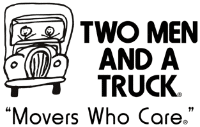Moving to a new home can be exciting, but it can also be stressful, especially if you fall victim to moving company scams. Unfortunately, moving scams are more common than you might think. They can cost you money, damage your belongings, and create unnecessary headaches.
However, with the right information, you can protect yourself and make sure you hire a trustworthy moving company. In this article, we’ll show you how to spot moving scams and stay safe during your move.
The Risks of Moving Company Scams
Choosing the wrong moving company isn’t just an inconvenience—it can have serious consequences. Scammers can take advantage of unsuspecting customers in multiple ways, leading to financial loss, property damage, and emotional distress. Understanding the risks can help you recognize warning signs and make informed decisions.
Financial Loss
One of the biggest risks of a moving scam is losing money. Scammers often demand large deposits or surprise you with extra fees, leaving you stuck paying far more than you expected. Every year, thousands of people lose money to fraudulent moving companies.
Loss or Damage to Belongings
Scammers are not concerned about your belongings. In some cases, they may hold your items hostage until you pay more money. Other times, they may mishandle your things, leading to damage or loss.
Emotional and Mental Stress
Moving is already stressful. Adding a scam to the mix can make the experience overwhelming. Dealing with scammers can leave you feeling frustrated and powerless when you should be focused on settling into your new home.
Major Red Flags of Moving Scams
A reputable moving company should be transparent, professional, and reliable. However, scam companies often exhibit telltale signs that something isn’t right. Knowing these red flags can help you avoid falling into a trap.
No Valid USDOT Number or FMCSA Registration
Legitimate moving companies are required to have a USDOT number and be registered with the Federal Motor Carrier Safety Administration (FMCSA). These numbers prove that the company is licensed to operate and meets safety regulations. You can check a company’s USDOT number online through the FMCSA database.
Extremely Low Estimates
If a moving company offers an estimate that seems too good to be true, it probably is. Scammers often use low quotes to lure customers in, only to tack on hidden fees later. Be cautious and get multiple estimates to compare.
Lack of a Google Business Profile
Reputable companies usually have a Google Business profile where you can find reviews, photos, and contact information. If a moving company doesn’t have one, it could be a sign they’re not legitimate.
Unprofessional Website
A company’s website can say a lot about their legitimacy. If the website looks outdated, poorly designed, or lacks important information like contact details or services offered, it’s a bad sign. Be cautious if you notice typos, broken links, or generic stock images. Legitimate companies invest in their online presence to build trust with customers.
No Physical Address Listed on Their Website
A trustworthy company will have a physical office or location listed on their website. If the company’s website lacks an address or has an incomplete one, consider it a red flag. Double-check addresses using Google Maps or by contacting the company directly.
High-Pressure Sales Tactics or Vague Answers
Beware of companies that pressure you to book immediately or refuse to answer your questions clearly. Legitimate movers should provide clear and confident answers about their services, policies, and pricing.
Asking for Cash with No Paper Trail
If a company insists you pay in cash and refuses to provide a receipt, that’s a major warning sign. Professional movers typically accept multiple payment methods and provide a written record of transactions. Paying without a paper trail makes it nearly impossible to dispute charges or hold the company accountable if something goes wrong.
Common Moving Company Scams and How They Operate
Moving scams come in different forms, but they all have the same goal—taking advantage of customers for financial gain. Scammers use various tactics to deceive clients, manipulate costs, and create unnecessary stress. Here are a few of the most common moving scams and how they work:
Hostage Scams
Some movers will load your belongings onto their truck and refuse to unload them until you pay extra fees. This often happens when a company provides a low estimate, and then claims additional charges after your items are loaded.
Phantom Companies
These are fake moving companies that appear legitimate online. After collecting your deposit, they disappear without completing the job. They often use generic names and change contact details frequently to avoid being tracked.
Weight-Based Scams
Some movers may claim your belongings weigh more than they actually do to charge you extra. They might even use rigged scales to inflate the weight.
Last-Minute Price Hikes
Dishonest companies might add surprise fees on moving day for services that were supposedly included in your quote. For example, they might claim you need to pay extra for stairs, long carries, or additional packing materials.
Rogue Movers
These companies may steal your belongings entirely. They load your items, but instead of delivering them to your new home, they sell or discard them.
Proactive Steps to Protect Yourself from Moving Company Scams
While moving scams are common, you can take steps to avoid them and ensure a smooth transition to your new home. Protect yourself by following these proactive measures:
Research the Company Thoroughly
Look up the company on the FMCSA website, read reviews on trusted platforms like Yelp and the Better Business Bureau, and check their Google Business profile. Make sure their USDOT number, address, and contact details match across multiple sources.
Avoid Paying Large Deposits Upfront
A legitimate company typically asks for a deposit of no more than 10-20% of the total cost. Avoid companies that demand large sums upfront or require cash payments without providing a receipt.
Insist on a Walkthrough Before an Estimate
Trustworthy movers will want to assess your belongings in person or through a video call. This allows them to provide an accurate estimate based on the size and scope of your move. Avoid companies that give quotes without asking for details.
Get Everything in Writing
Ensure you have a detailed contract that includes the moving date, total cost, services included, and any additional fees. Never sign a blank or incomplete contract, as scammers can fill in false details later.
Ask for Proof of Insurance and Licensing
Reputable movers should provide proof of liability insurance and their license to operate. If they hesitate or refuse, consider it a red flag.
What to Do if You’ve Been a Victim of Moving Company Scams
Discovering you’ve been scammed by a moving company can be devastating, but there are steps you can take to address the situation and seek justice. If you believe you’ve been scammed, don’t panic. Take these steps to address the situation:
Report the Incident
- File a complaint with the FMCSA through their online portal or hotline.
- Contact the Better Business Bureau (BBB) and leave a review to warn others.
- Report the company to your state’s consumer protection office or attorney general.
Seek Legal Help
If you’ve lost money or belongings, consult a lawyer to explore your legal options. You might be able to file a claim in small claims court or pursue other legal action against the company.
Contact Your Credit Card Company or Bank
If you paid with a credit card, dispute the charges with your credit card provider. This may help you recover some of your money.
Share Your Experience
Write reviews on trusted platforms like Google, Yelp, or the BBB to warn others. Sharing your story can help other people avoid the same mistakes and hold scammers accountable.
Recover Lost Belongings
If your belongings were stolen or held hostage, report the incident to local law enforcement. In some cases, police can help retrieve your items.
Conclusion
Moving scams can make an already stressful process even harder, but you don’t have to fall victim. By knowing the red flags and taking proactive steps, you can protect yourself and your belongings.









